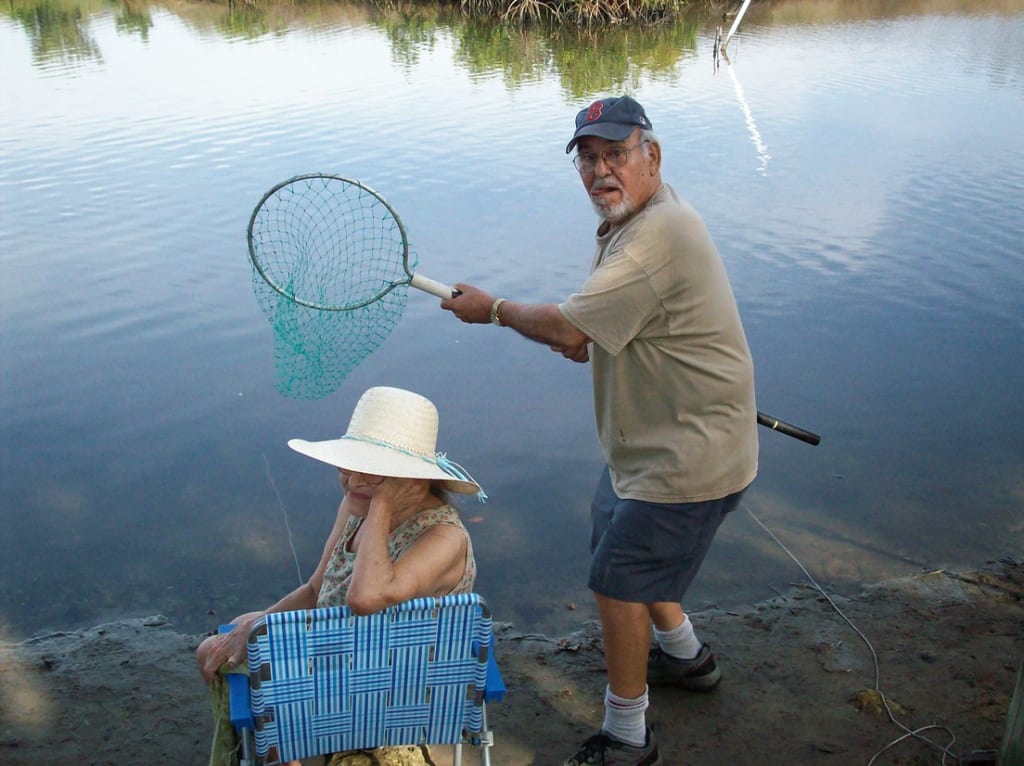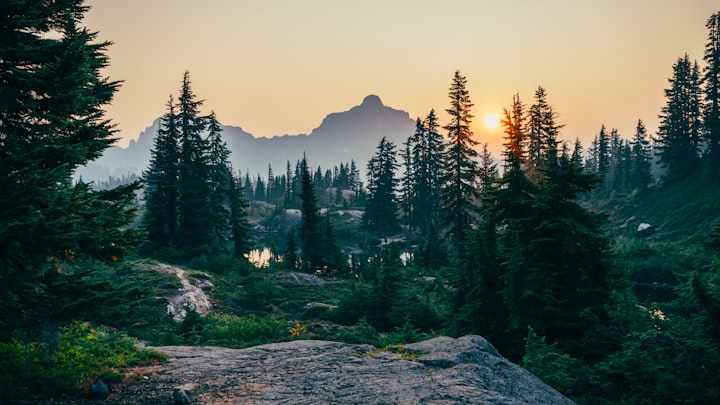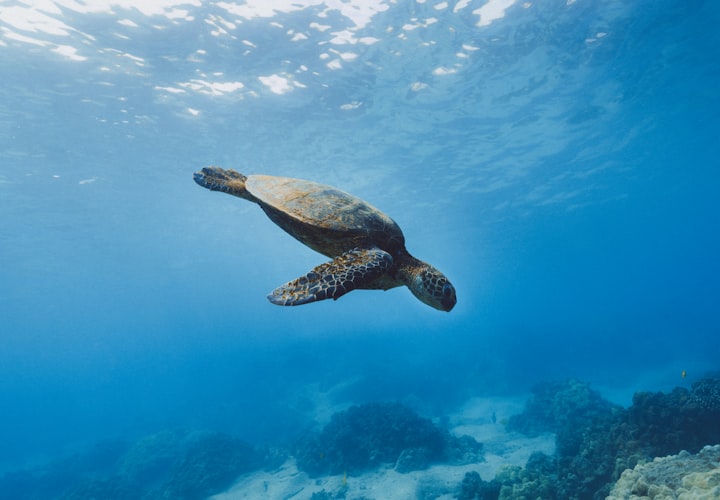Why Do I Go to the Beach?
No, really- why do I go?

Jimmy Buffet wrote, “Mother, Mother Ocean/I have heard your call.” Well, I’ve finally been asked, “Why the Beach?” I’ve tried to resist saying, “Why not?” and instead, I’ll attempt to delineate why “moonlit walks along the beach” is not just a cliché in my world.
First, there’s a deep family connection. My ancestors crossed a dangerous strait to get to Key West and establish roots there. Although the place they came from is now off limits for now, the island of Key West holds many mysteries for me. In the history of that island, many hurricane have destroyed the city, including its cemeteries. I have specific information on homes, churches, and burials of people in my family, but there’s no guarantee any of them are still there. It’s disconcerting at first to think of coffins bobbing up and down in the water after a Category 5, but that’s what most likely happened in the beginning of the 1900s before specific data collection came into being. Monroe County, in which Key West resides, saw 26 hurricanes from 1900-1926. What did my ancestors think when these storms came in? Did they get information in 1900 about the Galveston hurricane the obliterated Cuba? Did they come here for freedom after the Spanish-American war?
The other side of my family crossed the sea from Sicily. They helped established an area in Tampa Bay known as Ybor city. They and the other half of my family were both part of the cigar industry which relied heavily on the leaves grown in Cuba. This trade was brought in through ships on various waterways. The Tampa Bay area holds many bays, lakes, canals, and ponds, all of which have shores. Upon these shores many of my core memories were formed.
Crabbing is one of them. My parents were old-fashioned in the sense that they grew up during the Depression, and when times were tough, they fought to survive. Catching blue crabs in the area was not just a survival trait, it became a family event. I remember going crabbing near a power plant where the water was warmer. We are not commercial fishermen with fancy boats; we are regular people armed with nets on poles and Coleman lanterns in; one person had a floating galvanized tub tied behind him. Oh, I might add, this was in the dark.
As I shuffled through the darkness in water halfway up to my knee, I held the lantern in my left and the hard-wired net in my right. The lantern cast the light directly into the water, and crabs like to hide behind rocks and in holes. The light blinds them, and then I scoop him up in my net and cry out “CRAB!” Whoever has the tub comes over, and I dump the luckless crab into the bucket.
My Uncle Manuel was a bad ass. He had no use for a net. It would just slow him down. He’d follow whoever had the light, and when he spotted a crab, he’d step on it and pick it up WITH HIS HANDS to put in bucket, claws going this way and that. He still had all ten fingers after all that time. We would trudge this way for hours until the crabs started crawling out of the bucket like the zombies in World War Z. Back on shore we’d divide the catch up for each of the families to take home for a meal or to freeze.
At my house, blue crabs revealed my mom could have been a serial killer. We’d dump the crabs from the cooler into the slop sink. My mother, my kind-hearted saintly mother, would take a long-ass knife and stare the crabs down. She’d ask them, “Which one of you want to go next?” in this evil voice that quite frankly was disturbing. When she found the one she wanted, she stabbed it in the back, rip off the claws, rip off the top shell, and then use a brush to “wash” out the guts. Toss it into the bucket for rinsing next. All the crabs at our house met the same fate: the sauce.
My mother made a great spaghetti sauce, and the crabs went in. They cooked all day long, and we could smell them no matter where we were in the house. Dinner time: we sat down and had the spaghetti first. Once that course was done, it was throw-down time. My dad would leave because he didn’t want to eat “fool’s food.” It was too much work for so little meat. The rest of us tucked our napkins or actual TOWELS under our chins. Time to dig into the crabs. Bodies and claws – each one required a different technique to get all the meat out. It’s not like lobster that’s pre-fixed for you. Much more difficult than snow crabs. These were tinies. We had to use nut crackers and picks to get all the meat out. We could sit there eating crabs like people used to do at the Melting Pot fondue restaurant. It was unusual to be there for two hours with the giant pot in the center of the table.
There were two other ways we’d catch crabs, this time during the day. One was to tie a raw chicken back to the bottom of an open-sided crab cage. We could throw the cages over a pier or cement edge. After about ten minutes, yank that puppy up and the sides would close. If the crab was stupid enough to eat the chicken (not a part of their normal diet), we got them fair and square. The other way took a lot more patience. Remember my mom? The stabby woman with the sharp knife? She’d take a chicken neck and tie it to a piece of nylon string. Toss that sucker out into the shore as far as she could. Then slooooooowly she’d drag it in. In the way she held the string, she could feel the crabs fighting for the chicken. Sloooooooowly and clooooooooser. When they were in sight, my dad and I were on the sides ready to scoop them up, and we’d do the whole thing over again.
Throughout my college years we didn’t go crabbing much. It was getting to be much more trouble and families were moving away. Until, that is, I happened upon an amazing thing. I was doing my boyfriend’s laundry at his 4th Street Station apartment complex while he was at work. Between cycles, I’d go outside and lie down by the canal fed from Tampa Bay that ran behind the building. Something moved near the water line, and then crawled up on the grass. I leaned up to see what it was. A baby gator perhaps? Good guess, but no. It was a GIANT blue crab. GIANT in that it was 10” from point to point (on the sides). It was an absolute unit of a crab. These crabs came in through the canal, and then had no predators so they grew alarmingly large. I caught this one and put it in my husband’s tub.
Well. That’s not something I could keep under my hat. I told my dad about it, and in less than a few hours he and my brother came over. I showed them the crab in the tub, and they about lost their minds. They started walking along the canal and caught so many monster crabs they got tired from walk along the heavily slanted shoreline. They returned another day to catch more, and my mother was embarrassed by the midget ones we were catching in other areas. These were nuclear crabs. After that, we couldn’t go back to crabbing for 5” or 6” bodies. We were now spoiled by these limited-quantity beauties.
I live in Florida; crabbing is possible, and so is fishing. Whether it’s fishing from the shore or on a drift boat, catching fish is fun. If the fish were big enough, we’d get them prepared and have them for dinner. The earliest fishing I remember was at my Aunt Cookie’s house on a lake. My cousin Karen and I would lie down on the edge of dock. We’d have fishing lines of about 3’ long tied to a stick. For bait we’d use a bb-sized ball of bread or a piece of corn. We’d drop the line into the water and hold the stick perpendicular to the boards on the dock. When the line went crazy, we knew we had a bream. Pull him up, take him off, toss him back, repeat. I spent many summers doing this.
Fun facts about Florida: according to NOAA, we have 8,346 miles of coastline. And no matter where I go in the state, I am no more than 60 miles than a coastline. One of the joys of being a peninsular state is we have more beaches than Idaho or Tennessee. This doesn’t even bring up the number of lakes, rivers, streams, ponds, and the famous River of Grass – The Everglades. Just a word of warning if you should venture into the Everglades. Pythons and boas now live there, a by-product of a single idiot or two who “accidentally” didn’t want their pet snakes and let them go. Now they’re everywhere. There are contests to catch them. It’s like catching lionfish in the Gulf – you can get paid to catch these.
We have things other than this, especially with the combination of fertilizer runoff and warm weather. Red tide, an algae bloom that usually stays far offshore, has been coming in and killing fish, leaving their pungent, rotting bodies along the beach. Giant trucks rake them up and deposit them in giant garbage receptacles. The smell from this is horrific. Red tide also causes coughing, eye irritation, and other physical ailments. When corporations contribute to this, it makes my blood boil because this is our beach, our coastline, and the marine life deserves to live.
Florida is also known as the Sunshine State because we are not Seattle. We have an average of 237 of sunshine. However, there are days that are not sunshine and skittles. We have summer thunderstorms that pop up out of nowhere. The windshield in front of me could reveal the most beautiful blue sky, but my sideview mirror reflects the darkest, angriest storm cloud. Sometimes they’re on either side of my car. Sometimes these storms are a wee bit bigger. Hurricanes and tornadoes are part of the landscape of the state. The memes are correct. “Oh, look. It’s a Category 2” and a photo of a lawn chair tipped over. “I’m shopping for the hurricane” and it’s a photo of a six-pack of beer and potato chips. The media loves to hype up storms; people go rushing to the stores to buy water and peanut butter and batteries as if we’re going into the apocalypse. Talking with my in-laws it’s the same up north when a blizzard is forecast. Bread! Jelly! Flashlights! Water! People fighting in the stores over this stuff.
I can tell you it’s not like that everywhere. The street I live on tends to flood on occasion, sometimes covering up to the bottoms of stop signs. Part of our road is the tiny tip of the end of a river, basically a ditch, that is dry 98% of the time. The other 2% and we’re having a party. We’ve had people walking across our lawn on their way to their house. “Hi.” “Hello.” And off they go. I take my lawn chair and put it on my lawn or driveway and place bets with my neighbors. Will THIS car be the one to attempt going through the part of the road underwater? “It’s a bold move, Cotton. Let’s see if it pays off.” Sometimes the car will err on the side of caution and turn around. The others, however, are numbskulls. We are taught never to drive through water of unknown depth. They rev their engines and attempt to make it across. Going, going, down. And the car slows down, engine flooded, brake lights still visible, and they’re stuck there, floating along until a raised truck comes barreling through, and then the cars are left violently bobbing. I’ve seen jet-skis on my street, canoes, paddleboards, and plain old frolicking in the street water (NOT recommended here). You can’t do this in Kentucky.
Going to the beach as part of a vacation has many merits. The sands of the Gulf Coast are the best in the world-pure white fine sand that stretches on for miles. The water is warm, the waves are calm and relatively safe. The South Florida Basin is a long piece of underwater extending out from the Gulf Coast that isn’t very deep. Venice Beach has tons of sharks’ teeth and fossilized dinosaur bones. The East Coast provides a harder-packed orange sand and rougher waves. But people can drive on the beach sand at low tide on Daytona Beach. Park the truck and enjoy a tailgate right there.
Walking along the beach, no matter which side of Florida I’m on, is calming, soothing, repetitive, lulling me into a state of nirvana. The waves slow my heartbeat and breathing down. The salt in the water is healing. But when a fish or seaweed touch my leg, I’m screaming as I sprint cartoon-like toward the shore. The other day I was out in the Gulf, and a group of people south of me screamed a little, running toward shore and pointing toward the open water. Where I’m at. There’s a biggish gray thing swimming near me. Most likely a dolphin. Possibly a manatee, but I’m hightailing it out of there. I stayed nearer the shore after that.
Back up along the shoreline, I collect small, unusual shells and sea beans. My mother-in-law turned me on to finding sea glass, and now I’m relentless. Early and late trips on the beach to find bits of beer bottles is now what I do. Cruise trash, I suppose. Sometimes I’ll find a bit of rusty metal and concoct a story in my mind that it’s from a pirate ship long ago, and it was part of the barrels that held the rum. I also love finding “things that don’t belong.” I photograph them from different angles and write stories about how they came to be: a pair of shorts, a bucket, a crushed rose, a piece of driftwood, one shoe. They all have a story to tell.
Once we were staying in Gulfstream, and I was told I could stay up during the night to watch the sea turtles come on shore and lay their eggs. After a few sleepless nights, it finally happened. My eyes had adjusted to the darkness; we can’t have visible lights because it confuses the turtles. I watched a huge turtle the size of a bean bag make its way slowly up the beach. It took about an hour for her to do this. She turned around, laid her eggs, used her flippers to cover the eggs, and then crawled back into the sea. Watching this happen was amazing; I witnessed an endangered Kemp’s Ridley sea turtle lay eggs. Another time I was present when a group of baby turtles hatched and made their way toward the sea. Volunteers stood by the sides to make sure seabirds didn’t attack or cruel kids didn’t kick them. We’d nudge them when they strayed off the path until they made it back into the sea.
The sea is often used as a metaphor for struggles. We are knocked down by the waves, but we get back up. Knocked down, back up. And so it goes with life; we are blindsided by tragedies we did not see, but we pick ourselves up and keep soldiering on. Being able to stand in the cold, angry waves in Ormand Beach when no one else was it the water…for a moment I was stronger than all of them. I made it through the waves. I was pushed around a little but stayed upright. How many times are we afraid to go into the water at all? How many times in our lives do we feel that the waves are too much, and we just want to go under? That’s when we reach our hand out and grab onto someone for help. In my case it’s usually a giant water noodle, but you get the picture. Don’t let those waves knock you down. Sunrises give us the hope that the new day will bring good things, and the colorful sunsets remind us that we have done great things for others. It’s a ying/yang connection.
There’s a beautiful literature about the oceans and their beaches. One is about the single set of footprints in the sand, and the man saying, “Why, Jesus, did you desert me when I needed you most?” and the reply is, “My son, it was I who carried you then.” A comforting thought as I walk across the beach and watch footprints and evidence that people were there before me are washed away. Are sins washed away as easily? It’s easy to become deeply religious at the beach. Another story is about a woman picking up stranded starfish along the beach, tossing them back in. A man approaches her and says, “Why are you doing this? You can’t save them all. It won’t make a difference.” She picks up a starfish, tosses it in and says, “It made a difference to that one.” This is how teachers view their role in the classroom. We can’t save them all, but we can make a difference. I toss starfish, live crustaceans, and things that belong in the sea back to the sea. In my will it’s stated that all shells and things from the oceans I’ve collected need to go back into the water. I pick the garbage out and toss that in a refuse bin where it belongs.
There’s a connection to the sea, within the sea. All water is connected in one way or another; oceans are connected, some water becomes rain, rain goes underground and provides us life. When our lives end, we are returned to the ground where water continues to move through us. When I step into the ocean’s shore, I am in the same water that Moses walked through. The same water that King Arthur’s body was sent across. The same water that Columbus sailed. The same water that my ancestors played in. The same water that billions of people interact with every day, and I am now one with them. This profound truth pulls me closer to the water more than anything else.
I walk along the beach with my headset on and listen to tailored playlists. I’ve dance along the beach, a whirling dervish unseen in the dark. I become taller, more beautiful, more powerful, envisioning the models who lounge around the shore looking ever so beautiful. I’m all of this; the sharp shells under my feet don’t hurt because I am one with the sea, protected by the sea. The seagulls don’t move when I walk by because they recognize my power. Hair flying around, my legs powerfully propelling me on land as a mermaid’s tail does in the water. I am a Scorpio, and it is a water sign. I am Aphrodite, born of the sea foam; I am a siren whose voice is so irresistible men fall at my feet. I am Amphitrite, goddess of the sea who keeps Poseidon in line. I am Calypso wanting to keep Odysseus by my side. I am Ran, goddess of the sea. I am at my best near the water.
Buffet sums up his relationship to the sea in “One Particular Harbor”: “Bounty of the land is exhausted/But there’s still abundance on the sea.”
And that’s why I go to the beach.
About the Creator
Barb Dukeman
After 32 years of teaching high school English, I've started writing again and loving every minute of it. I enjoy bringing ideas to life and the concept of leaving behind a legacy.






Comments
There are no comments for this story
Be the first to respond and start the conversation.